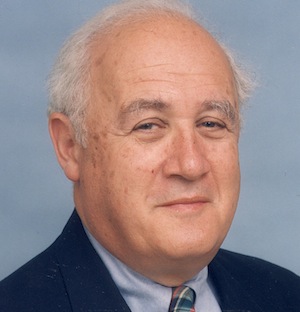Lorimer:
Those of you who have learnt anything at all about the biopsychosocial model as it relates to pain, and I would predict that is all of you reading this, have been influenced by Professor John Loeser. After reading a bucketload of his excellent papers over many years, I had the privilege of sharing the stage with him in one of the Berkeley Lectures. I was struck by his insightful and frank appraisal of not just the pain literature, but the economic, political and cultural barriers to overcoming this Grand Challenge. He has passion a plenty and is a constant advocate for people in pain. Well, now he has written a cracking paper just out in the Clinical Journal of Pain and he was kind enough to summarise it here for us. Read his post and then do yourself a favour and get the article.
John Loeser:
Improved chronic pain management will be dependent upon both better strategies to reduce pain and upon ethical changes in contemporary American health care. The business environment is not appropriate for health care; economic determinism is not an ethically appropriate basis for pain treatment. Highly remunerated procedural interventions do not often yield long term pain relief. Instead, multidisciplinary pain management focused upon patient cognitive and behavioral change is the most effective treatment available today.
There is solid clinical research demonstrating efficacy and cost-effectiveness of multidisciplinary pain management, yet, those who fund health care choose to deny this form of treatment to their beneficiaries. Physicians are inadequately educated about chronic pain; medical schools and post-graduate training programs both need to incorporate in their curricula much more information about chronic pain patients and their diagnosis and management. Most chronic pain management should be done by primary care practitioners; specialist referral should be for the difficult or unusual chronic pain patient.
Another important issue is the concern about excessive prescription of opioids; the moral obligation to alleviate pain and suffering seems to have been displaced by the desire to curtail excessive prescribing. The question of whether or not long-term prescription of opioids for chronic pain patients is an effective form of treatment remains largely unanswered. Yet, deaths due to prescription opioids have sky-rocketed. Failure to recognize the differences between acute and chronic pain can result in treatment strategies for chronic pain patients that are hazardous, expensive and devoid of evidence for successful outcomes. Chronic pain is “transdermal” and is best treated using a biopsychosocial model that looks beyond the place that hurts to the psychological and social factors that so strongly influence the presence and duration of chronic pain. We need to re-align the financial incentives for the provision of care to chronic pain patients.
John D Loeser, M.D.
 Dr. John D. Loeser is Professor emeritus of Neurological Surgery and Anesthesiology and Pain Medicine, and was the Director of the Multidisciplinary Pain Center at the University of Washington from 1983 to 1997. He is a graduate of Harvard College (1957) and New York University School of Medicine (1961). He has been active in research, teaching and patient care in the field of Pain Management for over 45 years. He is the Past President of the American Pain Society and the International Association for the Study of Pain and a former Fulbright Senior Scholar in Australia. He was the Assistant Dean for Curriculum at the UW from 1977-1982. His recent clinical interests focus upon health care for low back pain and the management of pains related to injuries of the nervous system. He is particularly interested in multidisciplinary pain management and the development of rational strategies for the treatment of patients with chronic pain.
Dr. John D. Loeser is Professor emeritus of Neurological Surgery and Anesthesiology and Pain Medicine, and was the Director of the Multidisciplinary Pain Center at the University of Washington from 1983 to 1997. He is a graduate of Harvard College (1957) and New York University School of Medicine (1961). He has been active in research, teaching and patient care in the field of Pain Management for over 45 years. He is the Past President of the American Pain Society and the International Association for the Study of Pain and a former Fulbright Senior Scholar in Australia. He was the Assistant Dean for Curriculum at the UW from 1977-1982. His recent clinical interests focus upon health care for low back pain and the management of pains related to injuries of the nervous system. He is particularly interested in multidisciplinary pain management and the development of rational strategies for the treatment of patients with chronic pain.
Reference
Loeser JD, & Cahana A (2013). Pain medicine versus pain management: ethical dilemmas created by contemporary medicine and business. The Clinical Journal of Pain, 29 (4), 311-6 PMID: 23462285



